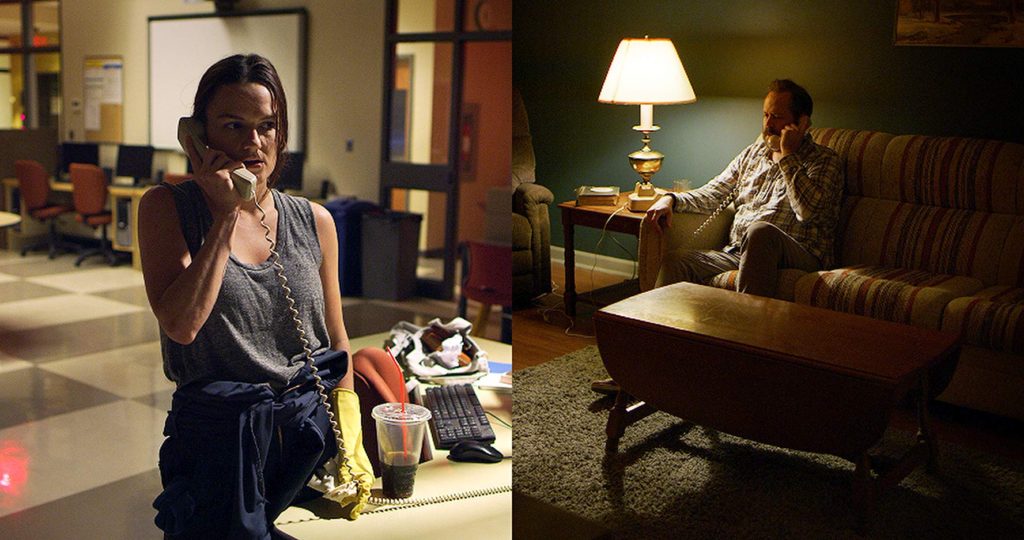Very rarely does a film successfully achieve a new cinematic feat in modern-day cinema. Last Call, directed by Gavin Michael Booth, has managed to do this through an impressive editorial choice of a continuous shot, in two different scenes, with two different actors sharing one heartbreaking story shown over a split-screen.
The magnitude of effort that will have gone into this film does not go unnoticed throughout the entire screen time. However, the script at times lost pace and relied heavily on the incredible actors and cinematography.
Last Call tells the story of Scott (Daved Wilkins), a severely depressed and lonely man, who accidentally calls Beth (Sarah Booth), a night janitor, at a career centre instead of a suicide helpline. The film follows Beth’s attempt to keep Scott from harming himself and Scott’s downward spiral.
The film is intense, naturally from the subject matter. And the actors’ ability to present these characters with such humanity is a testament to their talent and respect for mental health awareness.
Despite their commitments, the script at points loses poignancy and pace, which pulls the viewer out of the story. This is due to moments which were unnecessarily dragged out, such as scenes where Scott left the phone call. And these are directly in contrast to scenes that could have used more time to build up relationship or climax, such as Scott’s presumed death or the beginning scenes where Beth chooses to stay on the line. These script issues do not reduce the film’s overall impact too severely as the impeccable cinematography is a feast for any film fan.
Last Call would not have worked as well as it did without the choice to use split-screen and continuous shots for each scene displayed. This presentation created an intensity unseen in most films and told the story of Scott and Beth in a manner that is hard to compare to anything seen before.
No scene is more important than the other, and the viewer is kept in both worlds even in moments that lack dialogue. The intensity created due to the real-time effect of the continuous shot manages to create relationships with the viewer and the characters that are incredibly personal. This all tied together creates a unique viewing experience that will be hard to forget.
Gavin Michael Booth’s Last Call is not a film without faults, however, it’s commitment to the subject matter and remarkable cinematography is worthy of celebration. The creation of a fresh viewing journey, deep humanity in each character and an honest connection with the viewer are all elements of this film which propel it into a league of its own. Last Call is a truly unique film, and one that should be seen to completely understand its achievements.

